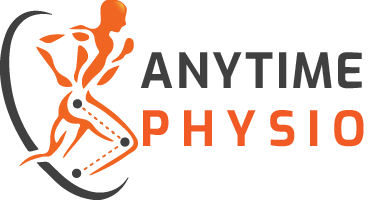Jaw Pain & Temporomandibular Disorders (TMD)
AN INTRODUCTION TO THE JAW
Temporomandibular disorder (TMD) refers to any condition affecting the jaw, potentially causing pain and reduced movement of the jaw. Anatomically, the jaw is a bi-articular hinge-joint. It is a very complex joint and is often overlooked by physiotherapists. Many people suffering with jaw pain do not consider physiotherapy as a treatment option.
CAN PHYSIOTHERAPY HELP JAW PAIN?
Anytime Physio in Brisbane offers expert and affordable treatment of jaw pain and other facial pain conditions. Physiotherapy for jaw pain treatment is available at our Gasworks physio clinic in Newstead. Physio treatment for jaw pain will involve assessing movement of your jaw, identifying positions and activities that cause pain and clicking and addressing muscle pain and joint stiffness through hands-on techniques and exercises for your jaw. The majority of people with jaw pain and stiffness can expect to experience quick and lasting relief from their jaw pain when the correct diagnosis is made and the right combination of physiotherapy treatment techniques are offered.
COMMON JAW CONDITIONS
Temporomandibular disorders usually involve one or more following structures:
- the temporomandibular joint (TMJ) itself
- mandible
- temporal bone
- the articular disc
- the ligaments of the joint
- the muscles of the jaw
- structures around the joint such as the ears,neck, cervical spine, teeth, & face
Below is a list of common conditions affecting the jaw. Please remember that this list is not exhaustive and that jaw pain does not have to involve any one particular structure. Your physiotherapist will diagnose the cause of your jaw pain and guide you through the specific rehabilitation for your jaw condition.
- Fractures
- Dislocations
- Temporomandibular disc displacement
- Retrodiscal tissue irritation
- Muscular pain and overuse
- Jaw parafunction
- Bruxism (teeth grinding)
- Clenching
- Osteoarthritis
- Rheumatoid arthritis
- Remember that this list is not exhaustive. There are many reasons why jaws can hurt (and some of them don’t even involve the jaw).
ACUTE INJURY MANAGEMENT
If you’ve just injured your jaw, here are a few tips to get you on the road to recovery. Please remember that this advice is general and does not constitute medical advice.
Rest From Aggravating Activities
In all likelihood, this means avoiding opening too wide and eating soft foods. With traumatic jaw pain, this can also mean avoiding pressure on the sore jaw. Try sleeping on your back with plenty of support from pillows. Do not lie on your side if you can avoid it.
Apply Ice for Jaw Pain (TMD) Relief
In the early stages of recovery, ice can be helpful to relieve swelling and inflammation in the jaw. Do not apply ice directly to the skin, but instead, wrap an ice pack in a damp cloth and apply this to the painful jaw for 20 minutes every 2 hours.
Book An Appointment with a Physiotherapist
Our Physiotherapists have extensive experience in assessing and treating jaw pain. They have worked with dentists and prosthetists and knows each step of successful rehabilitation. Physiotherapy for jaw pain involves identifying the structures involved in the pain and the factors that led to the injury in the first place and designing a recovery plan suited to your specific condition. Treatment options include hands-on manual therapy, massage, exercises to improve mobility and motor control of the jaw.

